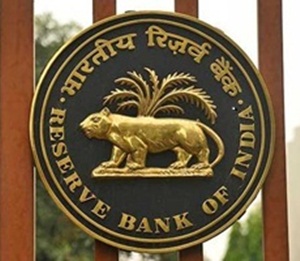The Financial Stability Report (FSR), released by the Reserve Bank of India (RBI), has raised concerns over the entry of major technology firms like Amazon and Google into the country’s financial system, saying that the tech firms could undermine the banking system by circumventing financial sector regulations.

The RBI report, which is the collective assessment of the sub-committee of the Financial Stability and Development Council (FSDC) on risks to financial stability and the resilience of the financial system, reflects on the contemporaneous issues relating to development and regulation of the financial sector.
RBI said the entry of Big Tech firms into the digital financial services would give rise to important policy issues. To resolve such issues, RBI has suggested better assessment of their functioning and entity-based prudential regulations.
"Specifically, concerns have intensified around a level playing field with banks, operational risk, too-big-to fail issues, challenges for antitrust rules, cyber security and data privacy," RBI said in its biannual Financial Stability Report.
Big Tech usually refers to the five biggest information technology companies that include Google, Amazon, Facebook, Apple and Microsoft.
While it acknowledges that big techs offer a wide range of digital financial services and have a substantial footprint in the payment systems, crowdfunding, asset management, banking and insurance of several advanced and emerging market economies, the central bank flagged three unique challenges that these big techs pose.
First, they operate in many different (non-financial) lines of business with sometimes opaque overarching governance structures. Second, they have the potential to become dominant players in financial services and third, big techs are generally able to overcome limits to scale in financial services provision by exploiting network effects, RBI noted.
As of now, UPI payments are dominated by Walmart-owned PhonePe, which has a market share of over 40 per cent and Google Pay, which has 37-38 per cent. The other key players include Paytm, Amazon Pay and WhatsApp Pay, which launched a few months ago.
The National Payments Corporation of India (NPCI) had already introduced a volume cap for a Third-Party Application Provider or TPAP (payment apps like PhonePe, Google Pay, Amazon Pay etc) effective 1 January 2021. Existing TPAPs who exceeded the volume cap as on 31 December 2020, will have a period of 2 years from the effective date to comply with the provisions. On the other hand, banks apps (Paytm, Axis etc) are exempted.
RBI noted that sustained policy support, benign financial conditions and the gathering momentum of vaccination are needed to nurture back an uneven economic recovery.
Policy support has helped in shoring up financial positions of banks, containing non-performing loans and maintaining solvency and liquidity globally.
On the domestic front, the ferocity of the second wave of corona pandemic has dented economic activity, but monetary, regulatory and fiscal policy measures have helped curtail the solvency risk of financial entities, stabilise markets, and maintain financial stability.
The capital to risk-weighted assets ratio (CRAR) of scheduled commercial banks (SCBs) increased to 16.03 per cent and the provisioning coverage ratio (PCR) stood at 68.86 per cent in March 2021.
Macro stress tests indicate that the gross non-performing asset (GNPA) ratio of SCBs may increase from 7.48 per cent in March 2021 to 9.80 per cent by March 2022 under the baseline scenario; and to 11.22 per cent under a severe stress scenario, although SCBs have sufficient capital, both at the aggregate and individual level, even under stress.
Going forward, as banks respond to credit demand in a recovering economy, they will need to reinforce their capital and liquidity positions to fortify themselves against potential balance sheet stress, the report added.




















